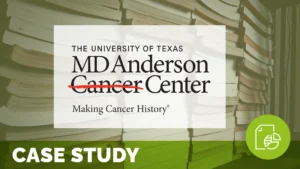Talk about The Stuff That’s Killing Us – Bias in Healthcare Part 3

See healthcare through the eyes of sickle cell patient, Cheslie Johnson, and understand the need for discomfort and honesty from Dr. Ron Wyatt. Dr. Ron Wyatt finishes this three-part podcast series with an eye-opening conversation concerning what really needs to take place if we commit to changing healthcare for everyone. Joining Dr. Wyatt is Cheslie Johnson, sickle cell patient, who helps illustrate Dr. Wyatt’s points through her story. She was labeled a “drug seeker,” despite narcotics being the standard of care for managing her disease.
Related content
-
 Culture & Leadership | Infrastructure & Governance
Culture & Leadership | Infrastructure & GovernanceReturn on Human Experience: Eight Principles to Inspire Excellence in Healthcare
Join Jason Wolf and Stacy Palmer, authors of Return on Human Experience: Eight Principles to Inspire Excellence in Healthcare, for a conversation on transforming the human experience in healthcare. At its core, healthcare is human beings caring for human beings—yet the complexities of quality, safety, service, cost, and outcomes often pull organizations in different directions.
Learn more -
 Culture & Leadership
Culture & LeadershipBuilding Diversity and Advocacy in Healthcare Leadership: A Proposed Graduate Program for Patient Experience Excellence
This case study examines the development of a graduate-level program addressing the need for healthcare professionals skilled in diversity, disparities, and advocacy (DDA) to enhance patient experience. Dr. Susan Lee, University of Texas MD Anderson Cancer Center, initiated the program to integrate DDA into leadership and practice, aligning with her organization’s mission to support equity
Learn more -
 Culture & Leadership
Culture & LeadershipA Human Experience Pioneer in Brazil
Marcelo Alvarenga, CEO of ConectaEXP Brazil, joins Jason Wolf, CEO & President of The Beryl Institute to discuss his passion for education in the healthcare experience space in Brazil. Listen in as Alvarenga describes the innovative efforts he has helped lead that have inspired Brazilian healthcare institutions to commit to a focus on human-centered care.
Learn more
